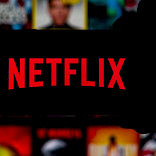This is a motto that the investor or business owner should apply at all times in my opinion. However, it becomes even more important during times like these, when interest rates are rising, and the economy is subject to an economic downturn.
Indeed, I believe that one of the objectives of any leader should be to offer as many options as possible to the company he leads. One of the best ways to do this is to maintain a healthy balance sheet.
Strong financial health will allow a company to not only weather the inevitable difficult times, but eventually to take advantage of the difficulties encountered by its competitors.
For example, last May, I wrote a blog titled “Paradigm Shift in the Stock Markets? .“ In this blog, I compared two companies in the same industry, the sale of used cars, CarMax and Carvana, and I wrote this: “Carvana’s stock has fallen almost 85% since its peak in August 2021 while CarMax’s has lost around 39% since its peak in November. With this drop in Carvana’s stock, it becomes much more difficult for the company to fund its business (and its losses) on favourable terms… CarMax, on the other hand, has no need for external capital to continue its growth.”
Six months later, Carvana’s stock is down nearly 98% from its August 2021 peak. In fact, the company’s market value has fallen from around US$60 billion a year ago to nearly $1.3 billion today. As of September 30, 2022, Carvana’s balance sheet showed net debt of around $7.1 billion, while its free cash flow was negative $1.04 billion since the start of the year. In my opinion, one of Carvana’s main competitors, CarMax, whose stock we own in certain portfolios managed by COTE 100, is likely to benefit from Carvana’s financial worries in the coming quarters.
Indeed, in recent months, access to capital has become much more restricted for businesses. The enthusiasm for share issues or new public offerings (IPOs) shown by investors last year has all but disappeared. In addition, issuing debt is still an option, but the terms are much less advantageous for companies, particularly those that are already quite indebted and whose activities are loss-making.
Personally, I greatly prefer owning companies with little debt. Even better, a business will have substantial cash on hand. Such companies could well take advantage of the current conditions to gain market share against their weakened competitors. They could also take advantage of the situation to make acquisitions at bargain prices.
Yvon Deschamps once said “better to be rich and healthy than poor and sick”. This is even more true during tough economic times.





